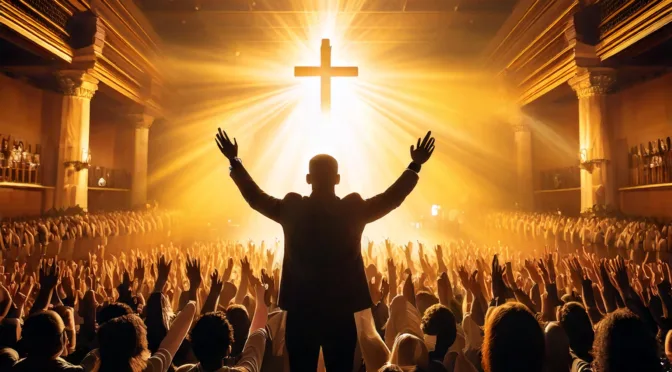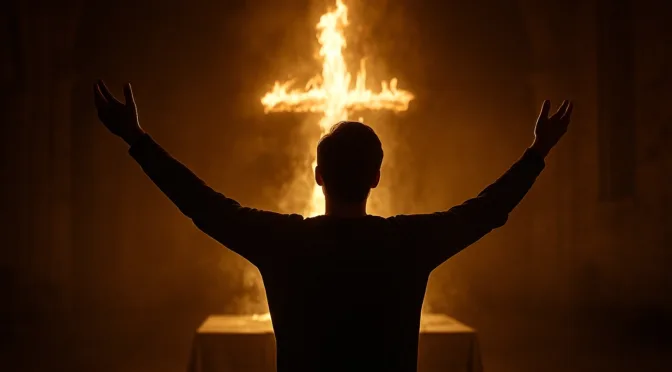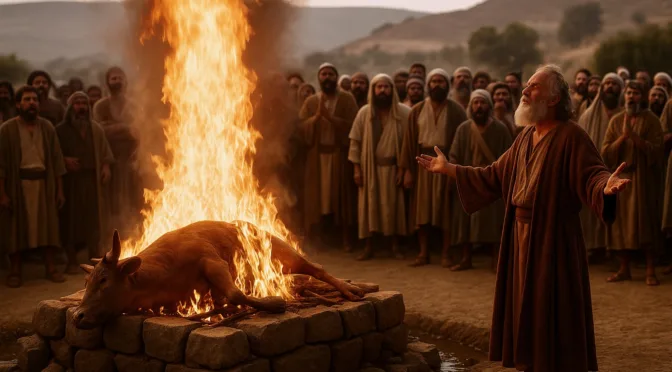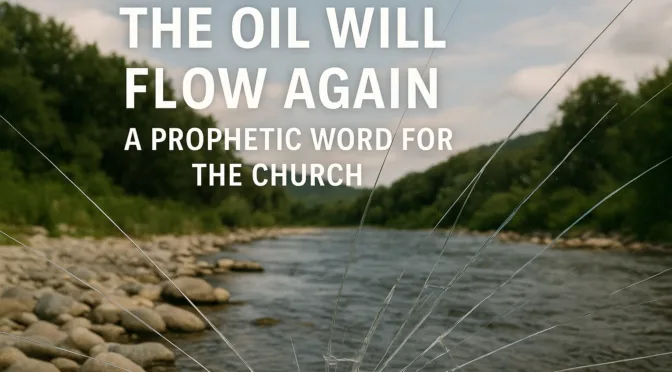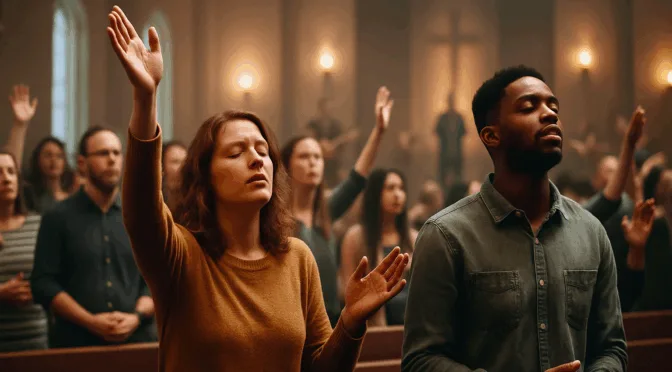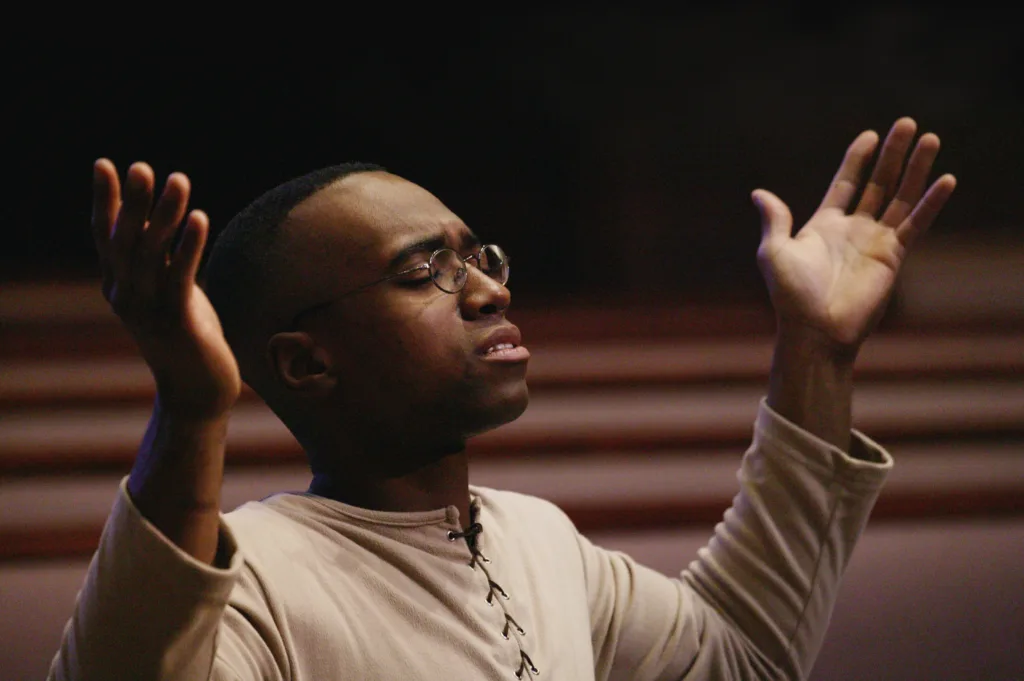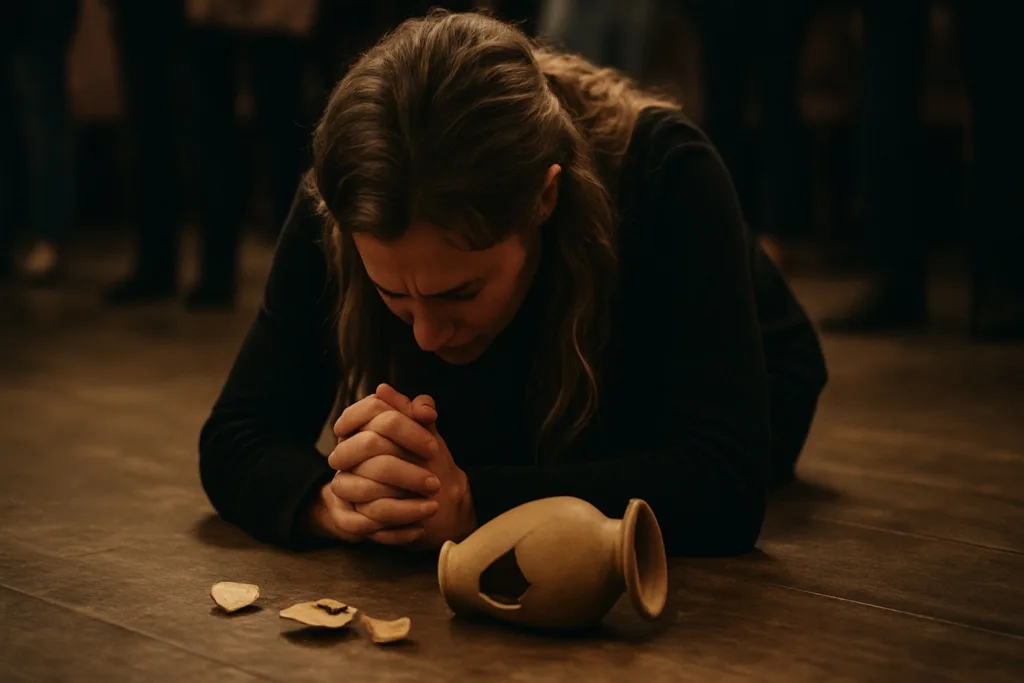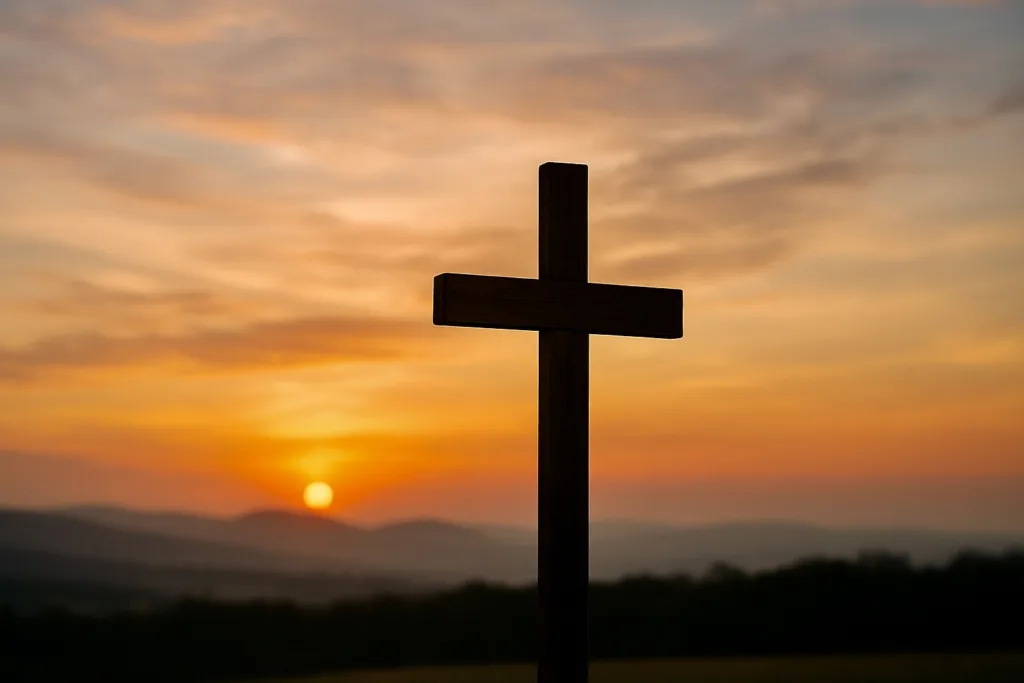“Were not our hearts burning within us while He was speaking to us on the road, while He was explaining the Scriptures to us?” (Luke 24:32, NASB)
The two disciples on the road to Emmaus had just encountered the risen Yeshua. They didn’t recognize Him at first, but as He walked with them and opened the Scriptures, something deeper stirred—their hearts burned. Not from manipulated sentiment or hyped theatrics, but from divine revelation breaking through veils of sorrow and confusion. This burning was not a fleeting feeling; it was the ignition of truth meeting the Spirit within.
Beloved, this is how God works. God does not play with our emotions. He doesn’t stage artificial atmospheres to provoke momentary sentiment. He is not in the business of entertaining souls, but of transforming them. His Spirit and His Word always work in unity, and when they touch a willing heart, the result is conviction, awakening, and worship.
There is a troubling trend in our generation: many are drawn to religious environments where emotionalism replaces anointed preaching, and psychological techniques masquerade as spiritual encounters. But let us be discerning. Emotions are not evidence of truth—they are merely responses. When the Spirit of God moves, emotions may rise, but they are the byproduct, not the proof. The Psalmist cried, “The entrance of Your words gives light” (Psalm 119:130, AMP). Light does not need to stir a tear to prove it has entered—it simply reveals.
The apostle Paul warned of a time when people would “accumulate for themselves teachers in accordance with their own desires” (2 Timothy 4:3, NASB). In such times, truth is replaced with experience, and conviction is replaced with sensation. But true revival never begins with a tear—it begins with truth and repentance. “Sanctify them in the truth; Your word is truth” (John 17:17, NASB). Where the Word is rightly preached and the Spirit is welcomed, there will always be transformation.
To be clear, God is not against our emotions. He created them. But they are not the foundation of our faith—they are its fragrance. When Peter heard the voice of the Father declare Yeshua’s Sonship on the Mount of Transfiguration, he later wrote, “We have the prophetic word made more sure” (2 Peter 1:19, NASB). Peter valued the Word above the experience. This is the true order of the Kingdom: the Word gives the foundation, the Spirit brings life, and emotion flows as a holy response.
We must ask ourselves: What burns within us? Is it truth igniting holy passion? Or is it the flicker of manipulated feeling soon to die out when the music fades? The early Church burned with a fire not fed by smoke machines or stirring choruses, but by the Word made flesh, crucified, risen, and soon returning. Their message pierced hearts, not by volume or rhythm, but by Spirit and truth. “For the word of God is living and active, and sharper than any two-edged sword” (Hebrews 4:12, NASB).
There is a deep need in the Body today to return to that Emmaus road—to walk with Yeshua again, to listen as He opens the Scriptures, to allow the fire of truth to burn away the dross of shallow religion. The Church does not need another show; it needs another awakening. It is time to build altars, not stages. It is time to host His presence, not emotions.
“You will know the truth, and the truth will set you free” (John 8:32, NASB). But only if we receive it. Only if we linger long enough to let the Spirit breathe on it. Only if we resist the temptation to replace depth with entertainment. Beloved, God wants your heart, not just your tears. He desires truth in the inward parts (Psalm 51:6), and He sends His Spirit to seal it within us.
So today, let us pray not for a passing feeling, but for a fire that remains. Let us seek not to be stirred but to be changed. Let our hearts burn again—not because a preacher moved us, but because God spoke.
⸻

A Prayer for the Burning Heart
Father, we come not to be entertained but to be transformed. Let Your Word burn within us again. Let Your Spirit open our eyes to truth, convict our hearts, and renew our minds. Strip away every counterfeit emotion, every religious pretense, and every shallow substitute for Your presence. Ignite a holy fire in us—not for performance, but for purity. We want to walk with You, listen to You, and burn with love for You. Give us a heart that trembles at Your Word and rejoices in Your truth. Let our worship rise not from manipulated tears, but from a heart set ablaze by revelation. In the name of Yeshua, amen.
⸻

